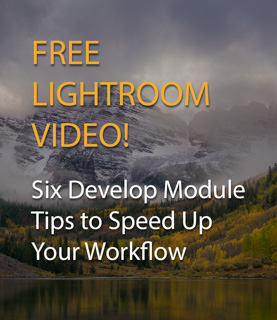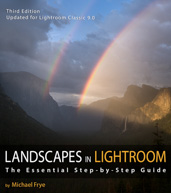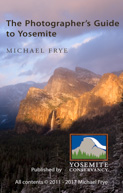 The spring equinox is only a few days away, and the light is changing rapidly in Yosemite Valley. In winter the rising and setting sun strikes formations on the north side of the valley like El Capitan, Three Brothers, and Yosemite Falls. In summer the best light shifts to the rocks and falls on the south side of the valley – Glacier Point, Sentinel Rock, Cathedral Rocks, and Bridalveil Fall.
The spring equinox is only a few days away, and the light is changing rapidly in Yosemite Valley. In winter the rising and setting sun strikes formations on the north side of the valley like El Capitan, Three Brothers, and Yosemite Falls. In summer the best light shifts to the rocks and falls on the south side of the valley – Glacier Point, Sentinel Rock, Cathedral Rocks, and Bridalveil Fall.
For Yosemite Falls, the best light doesn’t match up with the biggest flow. As the water volume grows in spring, the sun rises further and further north, and the light doesn’t reach the falls until 9:30 to 10:00 a.m. in April and May.
But Bridalveil Fall is better situated for spring light. From late March through about the end of April the sun sets through a gap to the west, and Bridalveil receives beautiful golden light just before sunset. The accompanying photo was made on March 27th, 2007 from Tunnel View. In May and June the light gets cut off earlier, but it’s still nice.
Bridalveil Fall can be photographed from across the river along Northside Drive (location 4 in my book, The Photographer’s Guide to Yosemite), Valley View (location 5), Tunnel View (location 8), or from the Bridalveil Fall parking lot and trail (location 7). You can see a rainbow right from the parking lot between about 5:00 – 6:00 p.m. throughout the spring. (Unfortunately the book is temporarily out of print; it should be available again sometime this spring.)
Poppies Update:
The poppies in the Merced River canyon are still going strong. While the earliest-blooming spots – mainly in the burned areas – may start to fade soon, other areas have just started flowering and should last a little longer.









Can you tell us at what time of the year the moonrise and Half Dome can be photographed together.
Thanks, John Cullen
john.cullen@valleyplating.com
Hi John,
This is one of those questions that I wish I could just answer by saying buy my book (The Photographer’s Guide to Yosemite). But since this won’t be available again until August, I’ll try to give you a brief answer.
Half Dome and the moon can be photographed together any time of year, depending on your position. You want to be photographing this scene two or three days before the actual full moon date, so the moon has a chance to rise high enough to be visible while there’s still light on the landscape. In winter the full moon rises east-northeast, to the left of Half Dome from Yosemite Valley, and this is probably the best all-around time. In late spring and summer the moon rises east-southeast, would appear to the right of Half Dome, and then only if you’re somewhere like Columbia Point (on the Upper Yosemite Falls Trail) or Yosemite Point, where you’re looking more southeast toward Half Dome.